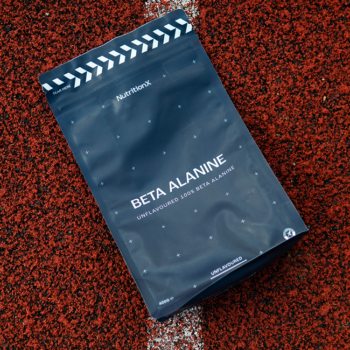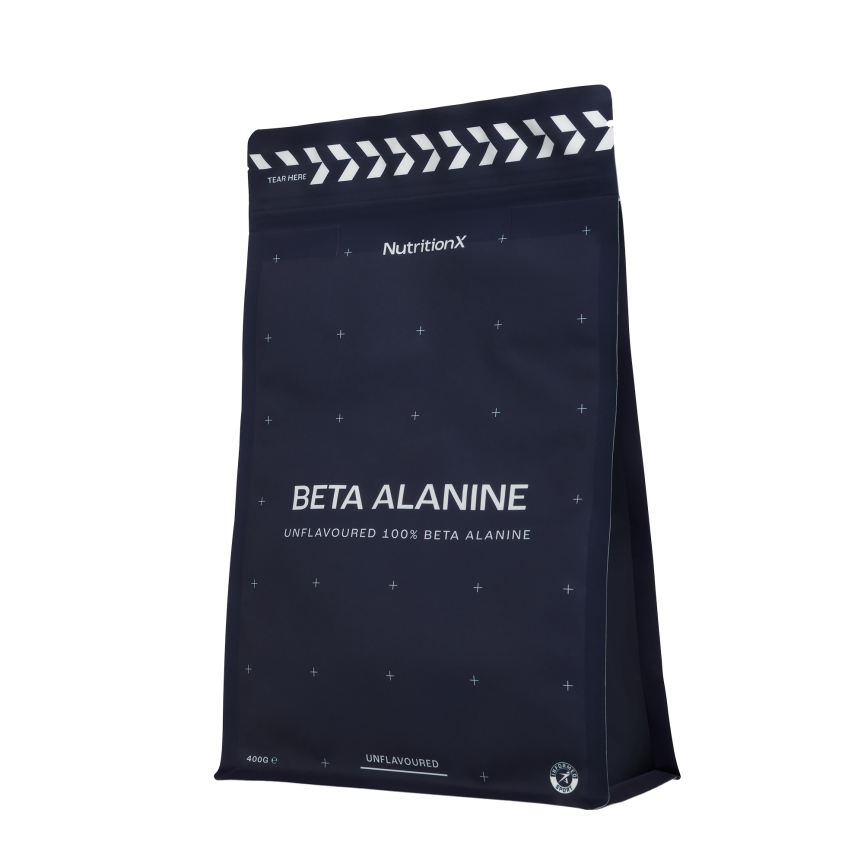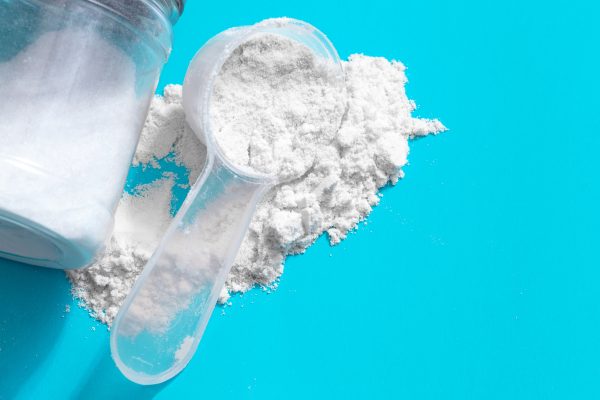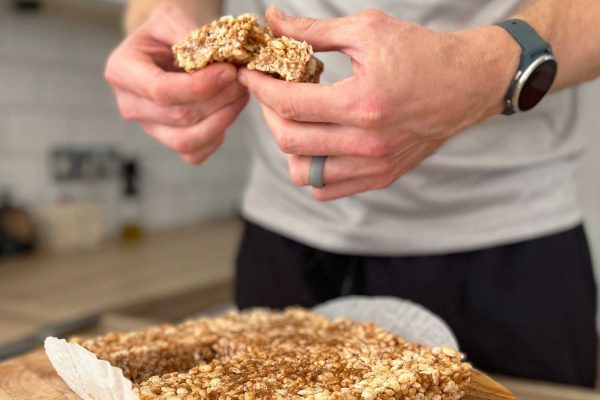Beta Alanine has long-been turned to by athletes of all disciplines thanks to its ability to support the body with high-intensity exercise; ideal when looking to delay the feeling of fatigue in the muscles and - ultimately - enhance performance.

Here, we give you the low-down on what exactly Beta Alanine supplements are, and why - or how - you should incorporate them into your nutrition strategy.
What is Beta Alanine?
Beta Alanine is a non-essential amino acid found naturally in the body. At its essence, Beta Alanine helps to increase muscle buffer capacity by contributing to the production of carnosine, reducing the chances of lactic acid build-up during exercise. This can be a factor leading to fatigue and, as a result, a decrease in performance.
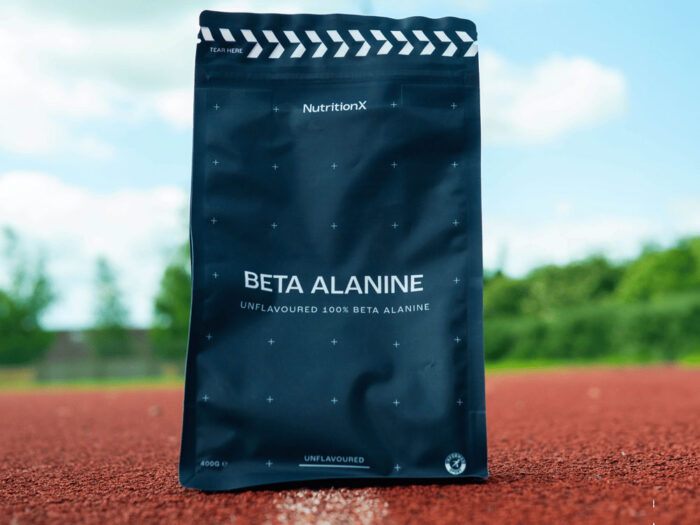
How do Beta Alanine supplements work?
Beta Alanine supplements commonly come in the form of a powder - like Nutrition X Beta Alanine - or a tablet. When taken in supplement form over the course of a few weeks, studies have shown that Beta Alanine supplements support the body in increasing muscle carnosine content, therefore increasing muscle buffer capacity.
Why is muscle buffer capacity important for athletes?
Muscle buffer capacity relates to the ability of muscles to neutralise acids produced during intense bouts of exercise, most notably lactic acid, which most athletes will have experienced the negative effects of a build-up of at some point in their training.
Muscle buffers provide a means whereby the muscle attempts to keep its internal pH at a neutral value of 7.0 (pH of 1-6 is acidic and above 7.0 is alkaline) and so enable the enzymes which help to control energy-producing reactions and muscle contractions to work most efficiently. When an excess of lactic acid is produced, this can lead to a drop in pH of the muscles, creating an acidic environment which inhibits the enzyme activity and the functional ability of the muscle to contract. As a result, lower energy production and a reduction in the body’s capability to produce power, strength and speed can occur.

Effective muscle buffer capacity is therefore important for athletes who regularly need to produce intense ‘bursts’ of energy, or maintain high levels of intense exercise over a prolonged period of time. Supplementing with Beta Alanine supports the body’s muscle buffer capacity, keeping power ‘up’ for longer.
Do Beta Alanine supplements work?
Multiple studies have shown the efficacy of Beta Alanine supplements when it comes to increasing muscle buffer capacity for athletes. In particular, studies have shown that by ingesting Beta Alanine over a period of a few weeks (normally 4-6 weeks), the muscle carnosine content increases significantly. In one such study, the muscle carnosine content increased by 58% after 4 weeks and then to 80% over 10 weeks (Hill et al., 2007). It’s therefore clear from evidence that taking Beta Alanine over a period of weeks works well to promote muscle carnosine synthesis (and therefore muscle buffer) capacity.
Who should take Beta Alanine supplements?
Any athletes involved in high-intensity exercise, or those who require intense ‘bursts’ of energy, should consider taking Beta Alanine supplements. This includes athletes involved in sports such as sprinting, weightlifting and cycling (time-trial or sprint intermittent bouts), where bursts of intense effort are frequent. Endurance athletes, such as long-distance runners or triathletes, could also benefit from Beta Alanine supplementation, as well as athletes looking to improve their overall muscle stamina. Football and rugby players are a great example of this, where long games require muscles to work at an intense level for an extended period of time.
How should I take Beta Alanine supplements?
Studies show a dose of around 4-6 grams of Beta Alanine per day effectively enhances carnosine in the body, in turn supporting an improvement in muscle buffer capacity. A lower dose of around 2-3 grams a day over a longer period of time has also been shown to produce similar results after an initial loading phase. It’s important to keep in mind that training with a gradual increase in muscle carnosine (ie. if beta-alanine is taken daily over a period of time) will lead to better quality training and thereby further improve performance outcomes.
Does Beta Alanine have any side effects?
As with any nutrition supplements, Beta Alanine can cause particular side effects for some people. The most common reported side effect of Beta Alanine use is a ‘tingling’ sensation called paraesthesia, often felt in the hands or fingers, or even the nape of the neck. This is temporary and can usually be rectified by taking a lower dose spread over the course of a day, or a longer period of time.
Why does Beta Alanine make you tingle?
Although not experienced by everyone who takes a Beta Alanine supplement, paraesthesia - ie. tingling - is a commonly reported side effect. This is due to its effect on the body’s nervous system when rapid absorption occurs. A sudden increase of beta alanine in the body can overstimulate the receptors on nerve endings, particularly in the skin, resulting in a ‘tingling’ sensation. Although completely harmless and temporary, this can be rectified by splitting the Beta Alanine dose throughout the day, rather than taking one or two larger doses.
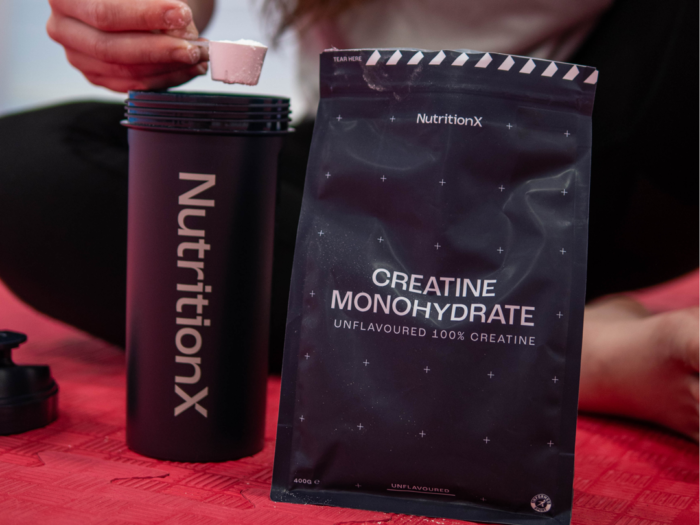
What is the difference between Beta Alanine and Creatine?
Beta Alanine primarily boosts endurance by increasing carnosine levels in muscles, helping to increase muscle buffer capacity during high-intensity exercise to avoid the negative effects of lactic acid build-up. This, in a nutshell, supports athletes in maintaining high-intensity bouts for longer. In contrast, creatine is a go-to for improving muscle protein synthesis, glycogen resynthesis and explosive power and strength, helping to give you the raw power you need to perform at peak intensity from the get-go. As a result, the two work well as supplements when taken together, although you should always consult a professional when incorporating supplements into your nutrition strategy. Learn more about the effect of creatine on the body in our ‘What is Creatine’ article here.
Check out our Beta Alanine Powder here.



